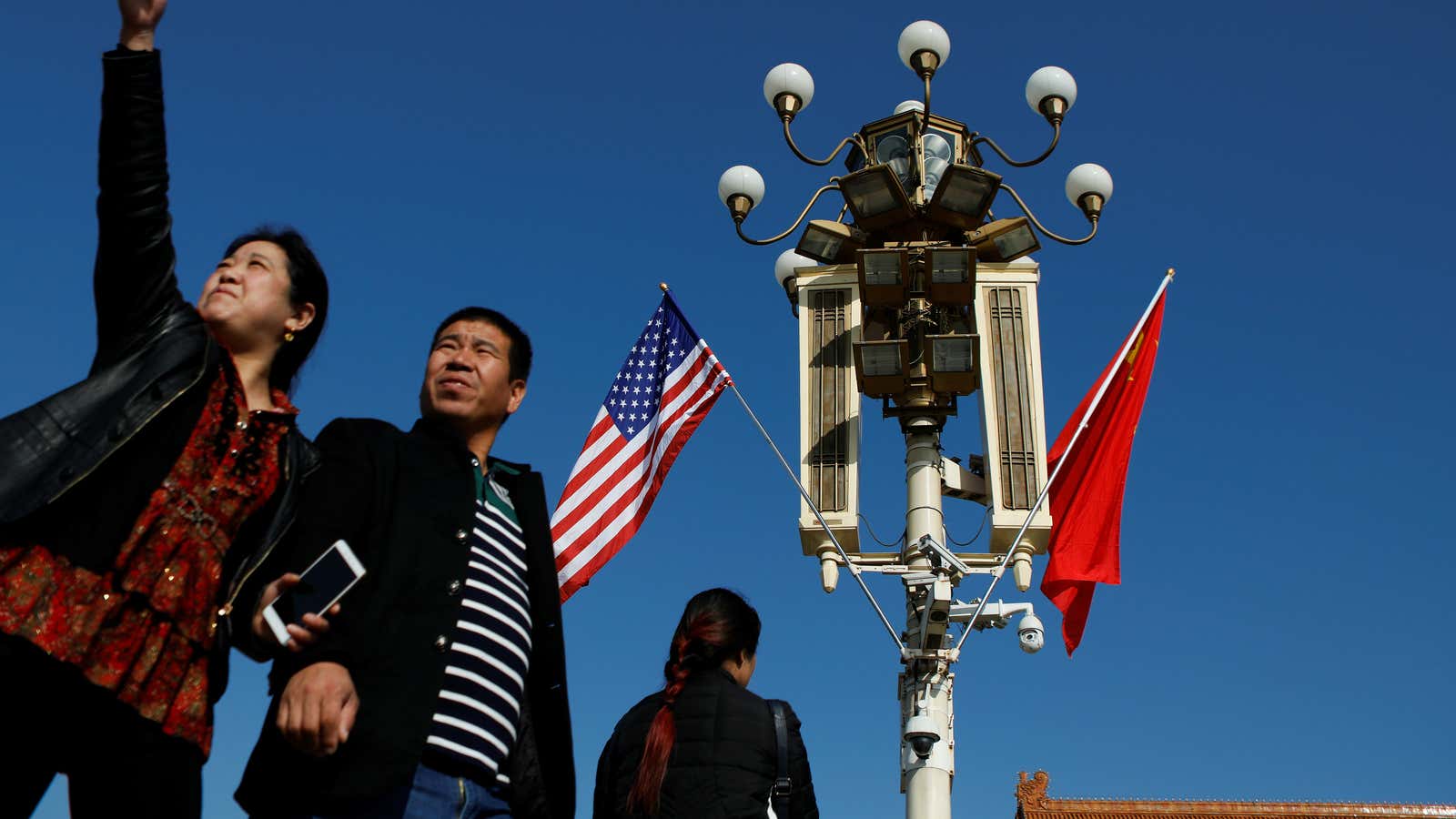The US government has arrested a former spy who may have significantly derailed the CIA’s operations in China in the early part of this decade. The capture highlights quiet tensions that the US and China have maintained over intelligence operations, as the two countries work to keep up appearances of positive relations.
According to the Department of Justice, authorities arrested Jerry Chun Shing Lee, a 53-year-0ld former CIA officer and naturalized US citizen, after he landed in John F. Kennedy Airport on the evening of Jan. 15. He has been charged with unlawful retention of national defense information and, if convicted, faces a maximum of 10 years in prison, according to the Justice Department. According to the New York Times, he does not have a lawyer.
Lee’s arrest comes years after the CIA faced a major crisis in China. Last year the New York Times reported (paywall) that between 2010 and 2012, Chinese authorities killed at least a dozen key US intelligence sources in China and imprisoned about 10 to 20 other individuals. For a time, the officials in the CIA were split as to what the cause of the fallout was—some believed that Beijing had hacked its communications services to reveal sources, others believed a mole was outing sources to Beijing.
Eventually, investigators zeroed-in on “a Chinese-American who had left the C.I.A. shortly before the intelligence losses began” and went on to live in “another Asian country,” the New York Times wrote in 2017.
This investigation may be related to the arrest of Lee this week, though the complaint against him does not reference China or the transfer of information at all. According to an affadavit (.pdf) filed by FBI Special Agent Kellie O’Brien to a Virginia court, while Lee was visiting Hawaii and Virginia in 2012, authorities conducted court-authorized searches of his hotel rooms. They found two books with real names and phone numbers of covert CIA employees, as well as “operational notes from meetings.”
Little information has surfaced about Lee’s personal life and career. According to the affadavit, Lee served the US army from 1982 to 1986, and went on to receive a bachelor’s degree and a master’s degree from Hawaii Pacific University. He entered the CIA in 1994 and served in “various overseas positions and locations” before leaving the agency in 2007. After that, the New York Times reports, he worked at an auction house in Hong Kong.
It’s not clear what prompted Lee’s arrest to occur over five years after authorities conducted their searches. Dennis Wilder, former deputy assistant director for East Asia and the Pacific for the CIA, told Politico “the fact that they did not arrest him on espionage charges means that they did not have direct evidence of espionage with a foreign power. It doesn’t mean he wasn’t involved in that.”
Lee’s arrest comes as the US wrestles with how to counter Beijing’s efforts to obtain counterintelligence from American sources. In March 2017, authorities arrested State Department employee Candace Marie Claiborne for allegedly providing contacts to Chinese intelligence agents in exchange for perks that included “Apple iPhone and laptop computer” and “Chinese New Year’s gifts.” Claiborne denied the allegations. In June 2017, former CIA officer Kevin Mallory was charged for allegedly committing similar crimes.
These two incidents, coupled with Lee’s arrest, mark examples of what experts describe as more aggressive efforts from Beijing to intercept American intelligence.
Typically the US government will keep quiet about its frustrations about such recruitment efforts in hopes of maintaining stable relations with China, say diplomats, since it remains a key economic partner. Yet as 2018 begins with signs of more fraught ties with China, Lee’s arrest suggests this silence might change.
